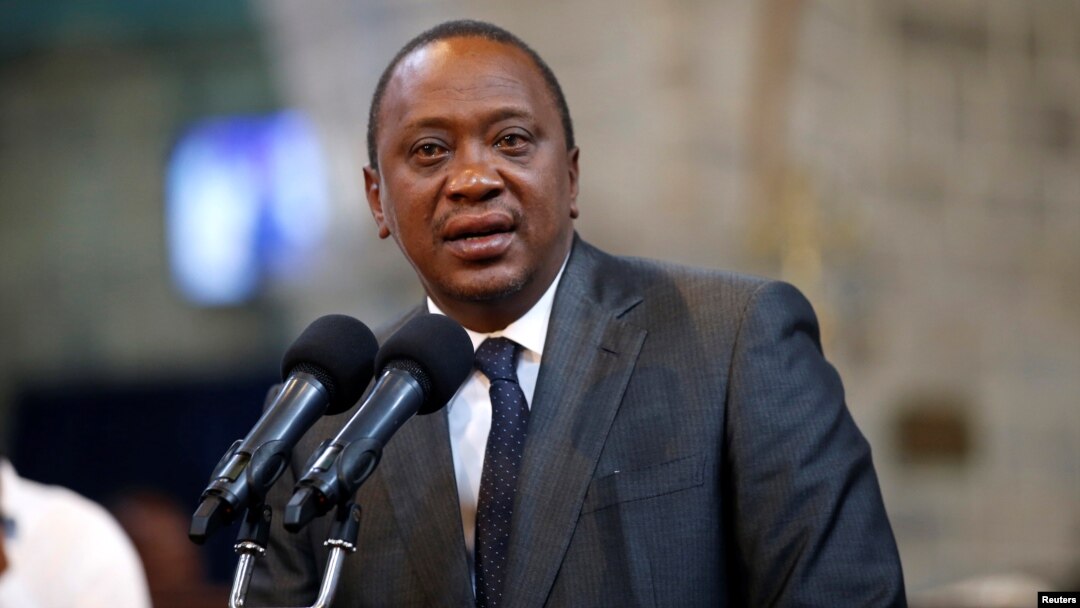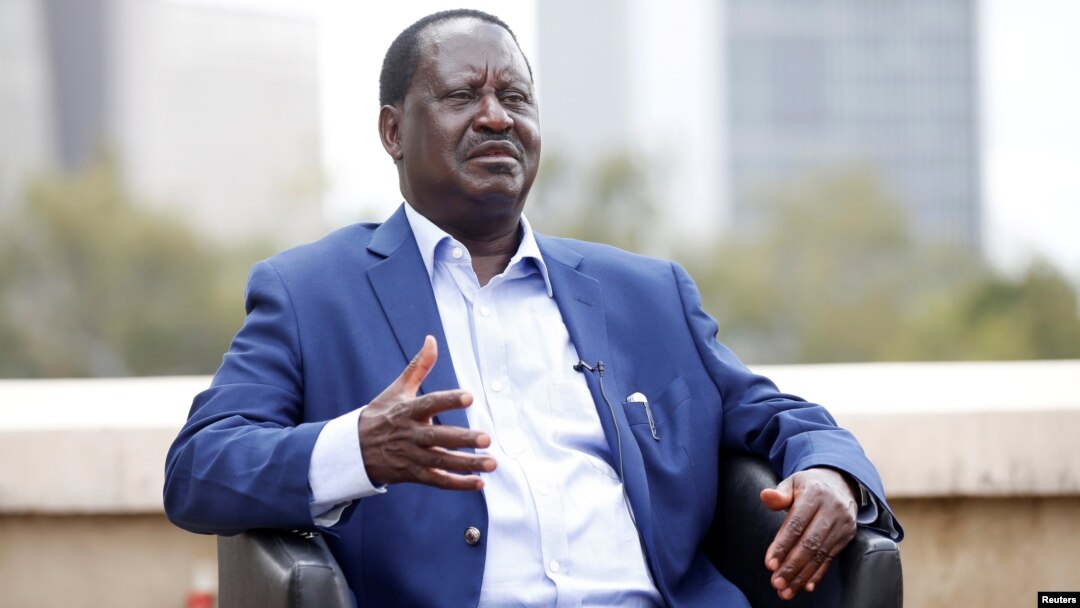Kenyan opposition leader Raila Odinga told an audience in Washington Thursday that Kenyans are so upset over the presidential election that they are considering secession.
Odinga, whose speech was broadcast on Kenyan television, told his audience at the Center for Strategic and International Studies that exclusion is the biggest problem in Kenyan politics today. He said unless that problem is addressed, it could tear the country apart.
Odinga said all four of Kenya’s presidents since independence in 1963 have been from the Kikuyu or Kalenjin communities, despite the fact that the country is home to 44 recognized ethnic groups. President Uhuru Kenyatta is Kikuyu, and his deputy, who is expected to run in the next election, is Kalenjin.
Odinga refused to compete in the recent presidential election, calling it a sham. Kenyatta won with 98 percent of the vote.

Kenya's President Uhuru Kenyatta delivers a speech during a ceremony at the All Saints Anglican Church in Nairobi, Kenya, Oct. 5, 2017.
Process contested
On Monday, just when many Kenyans thought they had seen the end of the country’s long election season, three petitions to contest the process were filed with the Supreme Court. The petitions target all sides in the presidential election controversy: the electoral commission, Odinga and Kenyatta.
Former lawmaker Harun Mwau filed a petition against the electoral commission, known as the IEBC, as well as its chairman and President Kenyatta. Mwau is challenging the validity of the Oct. 26 re-run presidential election, which he argues was held in violation of Supreme Court directions, the Constitution and relevant electoral laws.
The Institute for Democratic Governance, an NGO, filed one against several officials in the opposition NASA coalition, including leader Odinga, for engaging in what it called a “carefully choreographed scheme to derail, undermine and subvert the fresh election as announced by the Supreme Court.”
The IDG also accused the opposition of setting unreasonable demands for the electoral commission to meet.
In addition, Khelef Khalifa, chairman of the Mombasa-based group Muslims for Human Rights, filed a petition against the IEBC and its chairman, as well as Kenyatta and the NASA coalition. Khalifa filed jointly with Njonjo Mue, Kenya’s chairman of the International Commission of Jurists.
“We filed this petition because there were a lot of irregularities in the last election and this election,” Khalifa said. “When [the] Supreme Court made a ruling, and stated there were irregularities, because the procedures were not followed, and the Supreme Court was very categorical that elections is not an event, it’s a process. Now, in this election, the process also was not followed. So it compelled us to go to court because we felt this election was not going to be free and fair.”
Court annulled August poll
Kenya’s Supreme Court annulled the August presidential poll because of what it called “irregularities and illegalities” in the IEBC’s transmission of results, and ordered the body to conduct fresh polls within 60 days.
Kenya’s Supreme Court has until Tuesday to rule on the three petitions. If the election results are upheld, Kenyatta will be inaugurated for a second term Nov. 28.


